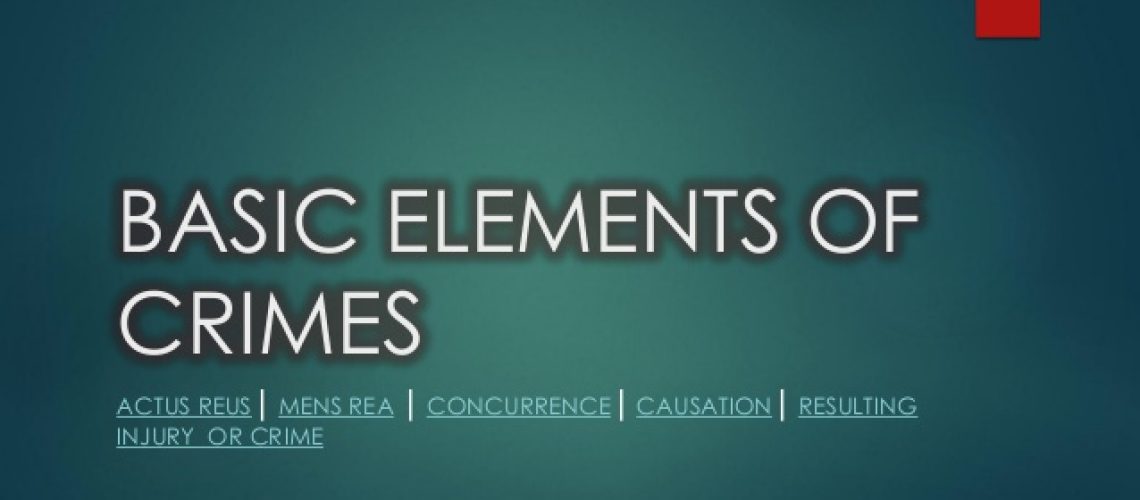By Siddharth Dey
It’s anyone’s guess that a spy would have a real good laugh when he sees a James Bond or a Johnny English film. In the same way, I suppose lawyers too are quite amused at how Jolly L.L.B. (not denying that it’s an enjoyable film!) or Boston Legal portrays a lawyer going about his work.
“Suppose”, because I am still a few years away from being a lawyer. “Suppose”, because what I cannot support with facts, I cannot conclude.
I can only suppose. I suppose because I am careful with what I say and do. After all, you cannot be much of a lawyer if you are not careful.
Sadly, not everyone is so careful – which is pretty awesome for us lawyers, though! I digress…
Sometimes, they end up doing wrong things when they aren’t careful. These wrongs can also be dangerous for other people.
At times, they may not be dangerous, but can be offensive to the social or moral code.
There are consequences to not being careful in such cases. For wrongs which qualify as crimes, the consequences are decided by the criminal laws present in the country.
Every country has its own set of criminal laws. In India, the major legislations on criminal law are (1) Indian Penal Code, 1860; (2) Indian Evidence Act, 1872; (3) Code of Criminal Procedure, 1973.
Apart from this, we have laws such as the Narcotics, Drugs & Psychotropic Substances (NDPS) Act, 1985 and the Prevention of Corruption Act, 1988, and several other minor legislations aimed at specific areas of crime.
Now, what exactly would be a subject of criminal law has have been explained HERE so we won’t go into the details.
In legal reasoning. criminal law has the most amount of subtleties. So, be a little patient with this. Soak in every word and phrase, slowly. Carefully.
Why do we need Criminal Law?
Depending on what the law seeks to achieve, there are several reasons to have criminal laws in place. The nature of punishments tend to vary accordingly, from country to country. To keep things short, we will stick to the system of criminal justice in India.
In India, it is popularly believed that we follow a deterrent system. This aims to impose sufficient punishment or penalty on the offender. The desired effect of this is that both that the offender and everyone in society would think long and hard before repeating what the offender had done.
Therefore, the deterrent system seeks to set an example for others. An example, not to be followed.
Elements of Crime
1) Person
This is kind of obvious. Criminal law applies to human offenders only, and therefore a criminal act has to be perpetrated by a person or a group of persons. This is quite logical too, since only persons can be made to go to prisons as punishment.
Even if the liability is conferred on say a group named XYZ Society, only it’s individual members will go to prison, and not the Society as such.
2) Mens rea
Mens rea or “guilty mind” is the mental element of a crime. This is derived from the Latin maxim which forms the keystone of criminal law:
“Actus non facit reum nisi mens sit rea”
(An act is not guilty, without a guilty mind)
These elements forming the “guilty mind” are:
i) intention to commit a criminal act – the willingness to go through with a criminal act at the time the act is committed. This rules out anything occurring accidentally.
ii) the knowledge of the effects that act – being fully aware of what can happen if a person commits that criminal act.
iii) a motive for committing the act – the underlying reason to commit the crime. It is indirectly related to the crime, but
Out of the three, is one more important than the others?
Intention is a sine qua non of a 99% of criminal acts. The offender may even have both knowledge and motive, but without intention, he may still get away without the full punishment.
Consider this: Jayesh hates his brother Jaidev. This happened since the day he got a big law firm job, while Jayesh could not. One day, Jagmohan, a feared dacoit enters their house at night. He holds Jayesh at gun-point and orders him to go and stab his brother, who was fast asleep.
Jayesh will not be guilty if he kills/injures his brother. Ignoring the other, finer technicalities involved here for now, Jayesh was fully aware of the consequences of his act. Additionally, he also had good reason to want to kill him.
However, did he himself want to kill or hurt Jaidev? No. He was made to do it.
Which brings us to another finer point about intention/willingness – legally, this intention or will must be free will. It should be exercised by the person himself, and should not be controlled by others. Also, having knowledge does not necessarily mean one has intention too.
What is the remaining 1%?
These offenses are called strict liability or no-fault liability offences. Here, the offender may not have intended it all, but his/her action may tend to cause injury or inconvenience to other. This is another case of where the offender should have been careful of the consequences of his/her act.
For example, you can be fined for driving above slightly above the speed limit or forgetting to put on the seatbelt, although you may not have intended either.
3) Actus Reus
Having a criminal thought or intent alone is not enough. From the above maxim, we derive the actus reus part of a crime. The actus reus is the final act by the offender, or the ‘guilty’ act, which constitutes a crime.
Therefore,
Mens rea + Actus reus → Crime
Actus reus can be both a positive act or an omission. The example of driving without a seat-belt is a perfect case of omission.
4) Concurrence
Mens rea and actus reus result in a crime only when they occur together. For example, Saroj wanted to ram into Shraddha with her scooter, but stopped midway. Later in the day, Shraddha ran in front of Saroj’s scooter and collided with it.
This cannot be seen as a criminal act, since the mens rea and actus reus did not occur simultaneously.
It could also be that the mens rea precedes the actus, and there is a direct link between the two. As long as it is shown that the intention has directly motivated the act, then in such a case, concurrence is established.
5) Causation
Causation or injury must be shown for an act to be criminal.
Therefore,
Mens rea + Actus reus + causation → Crime
However, not all crimes require an injury to be caused. This is because criminal law not only seeks to punish for the consequences of a criminal act, but also the criminal act itself. Driving without a seat-belt, again, is a great example of this.



1 thought on “<b>CLAT Legal Reasoning:</b> An Introduction to Criminal Law”
amazing<<<